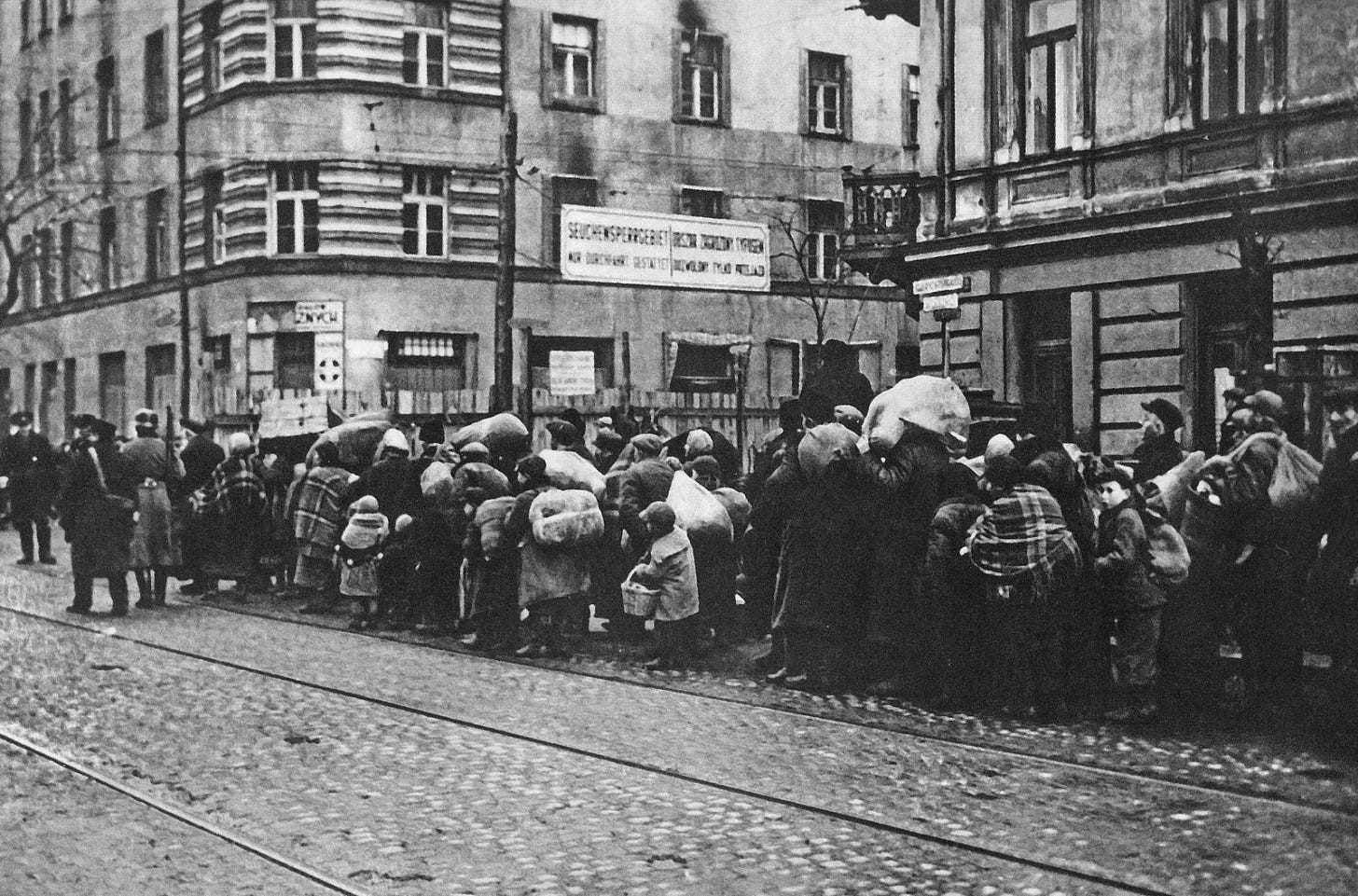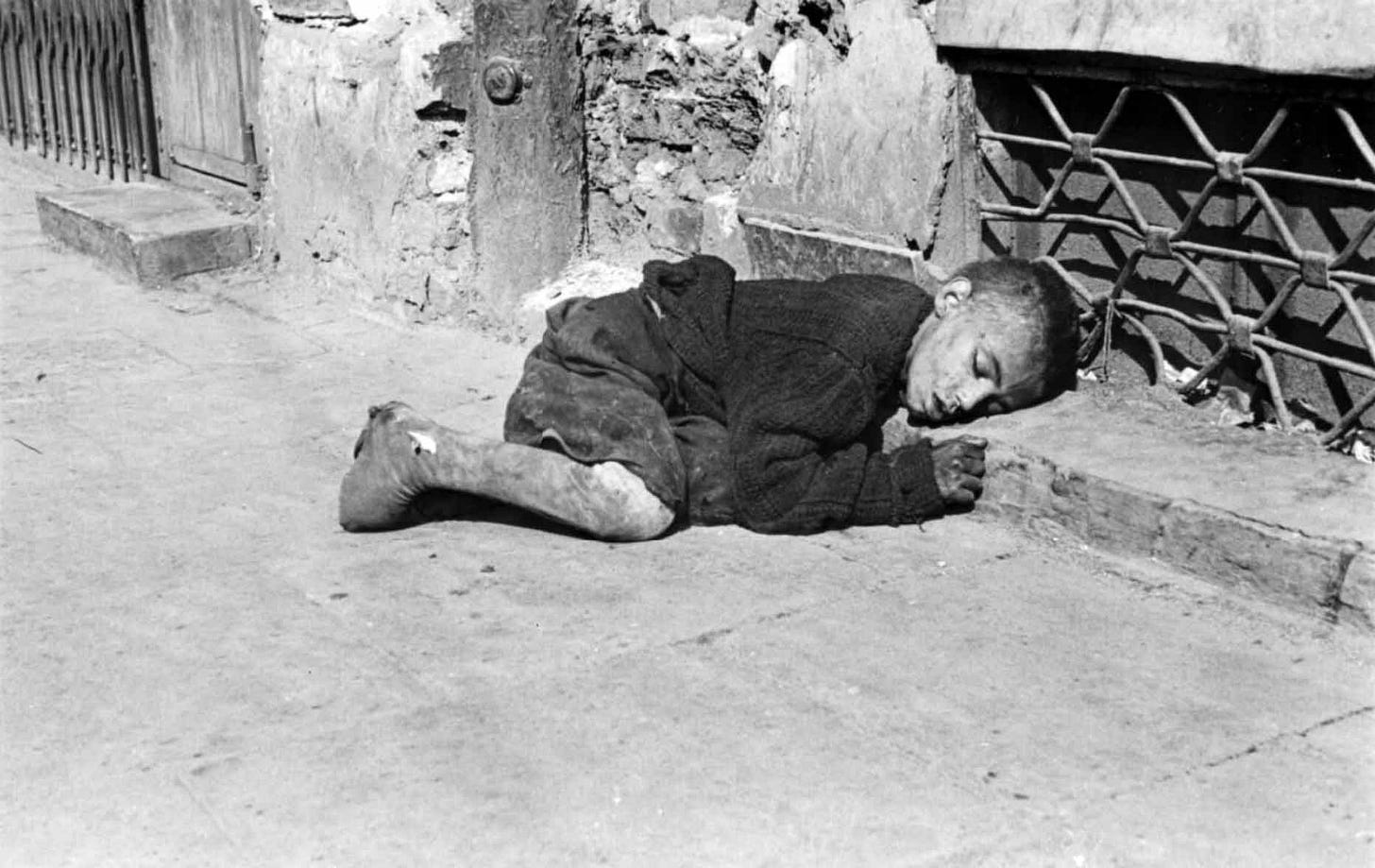Hiding in the Warsaw Ghetto
20th January 1943: As Jewish resistance stiffens those without the means to fight back are desperate to find a hiding place within the city




On the 18th of January 1943 the Nazis resumed the 'deportations' from the Warsaw ghetto. For the first time there was some resistance - shots were fired, a minor uprising. There was fighting in the streets, almost immediately crushed by the SS. Some six hundred people had been killed, but by the end of the day five thousand more had been forced onto the ‘transports to the east’.
Virtually everyone inside the ghetto now knew what the 'transports to the East for resettlement' really meant. They were a one-way train ride to the Treblinka killing centre, which had resumed operation around a week earlier. There was nothing to be lost in resisting, although the means by which to resist were extremely limited.
The SS responded with violence. Thousands more were rounded up in the most brutal manner and sent off in the cattle wagons. Amongst them were officials from the Judenrat, the governing council appointed by the Germans. Until now their compliance in assisting in selecting and sending people on the transports had saved them. Not any longer. The deportations would now be carried out at gunpoint.
Michael Zylberberg1 found himself a hiding place. Anywhere would do. If your street was selected for deportation, it was hide or die:
Among the deported were the officials of the judenrat with whom I had spoken only the night before. They had been rounded up and sent to Treblinka. I felt completely bewildered, and was hardly able to concentrate when someone told me that the bakery of the same house would make a good hiding place.
Friends intervened for me, and so I found myself hidden there with several others for the next seven days. Those days in the bakery were horrific. It was like being entombed, and even now, when I think of it, it still has a nightmarish quality. It was said to be a secure bunker, with hiding space for thirty people; in actual fact, a hundred people crowded in.
The entrance was a long narrow tunnel opening alongside the oven door. When everyone was inside, a mountain of coal was heaped up to hide the tunnel mouth, so that no one could suspect that there was anyone there. One had to be very agile to get into the tunnel, and then one had to continue along it on one’s stomach, using hands and knees for propulsion.
The overcrowded conditions can be imagined. Sitting or lying down was out of the question. People were pressed together, supporting each other, all standing.
It took at least ten minutes of strenuous pushing to get into the actual bunker at the end. The bunker was made up of two tiny rooms, better described as cupboards. They were so airless that one could not even light a cigarette. The overcrowded conditions can be imagined. Sitting or lying down was out of the question. People were pressed together, supporting each other, all standing.
There was one small electric lamp installed by the owners of the bakery, who had their own families among the crowd. Their children were the only youngsters in the bunker. Though the place seemed safe enough, the danger of discovery was considerable. The SS-men directing operations in the street would stop in the bakery above us, since the bakers had to provide them with food and drinks every day. The slightest noise would have betrayed us.
We were terrified because of the children. Everything was done to pacify and soothe them while they stood as wearily and silently as the adults. We had had the unusual good fortune of finding among the belongings, hurriedly thrown together, of the baker’s family, a Hagada [prayer book] published by Schocken in Berlin. This book was lavishly illustrated, and we used the pictures to amuse and quieten the children while the Germans were eating above us.
The seven days seemed interminable. The younger people, including myself went out several times in that week, late at night, to get a breath of fresh air; the very old and the very young had to stay put. The effort of dragging in and out of the tunnel would have been too great for them.
At the end of that period, the deportations came to an end.
Again the SS paused the deportations. But they would be back.


I don’t know if I could do what these people did. I know I couldn’t hide where they did - I wouldn’t fit plus I’m extremely claustrophobic.
I see the correlation between then and now, and it, quite frankly, scares the crap out of me. I don’t understand how people allow this to happen without fighting back. By the time they’ve decided to fight back, it’s almost too late. Yet, if I’m going to die, I want to go out on my terms and not on my oppressor’s.